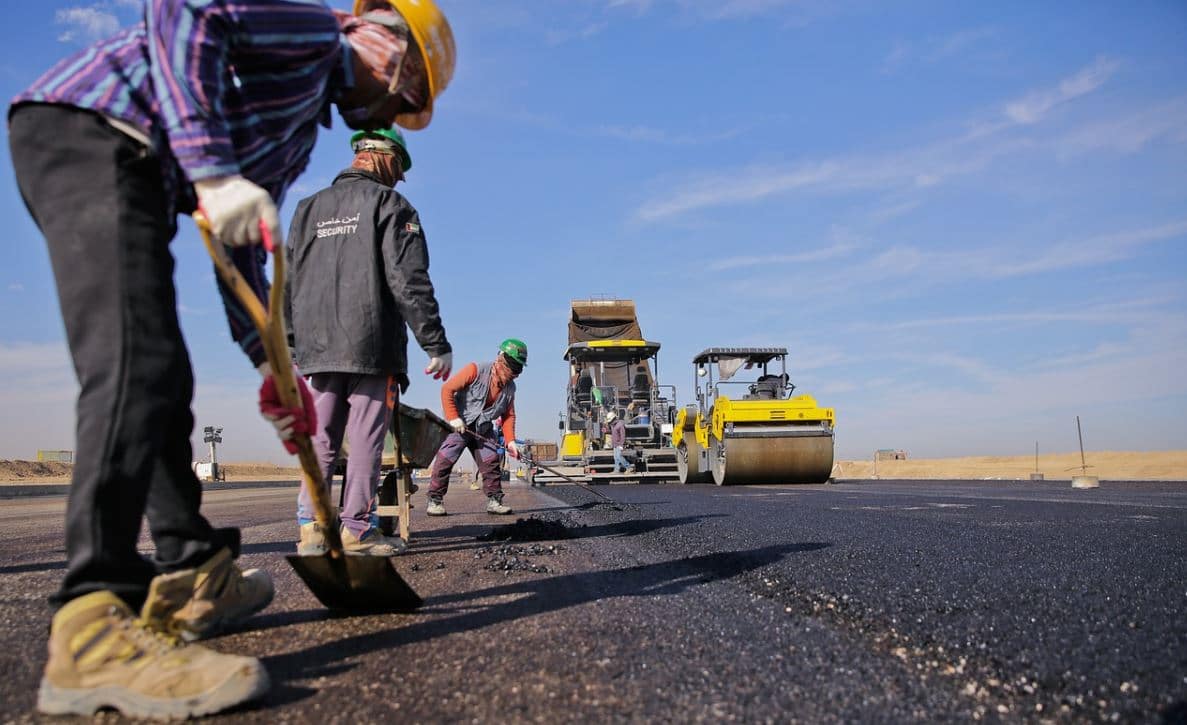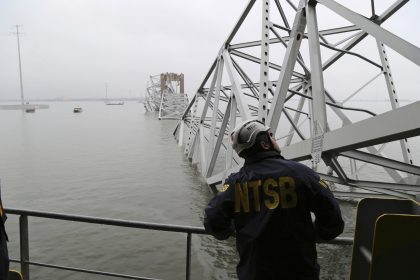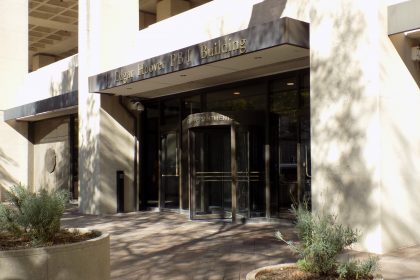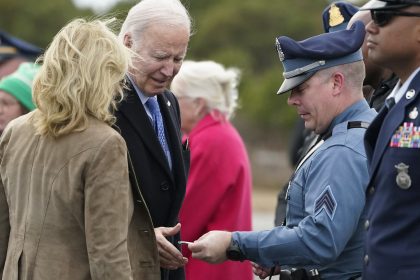House Democrats Unveil $1.5 Trillion ‘Moving America Forward’ Infrastructure Bill

WASHINGTON – House Democrats unveiled a sweeping $1.5 trillion infrastructure plan on Thursday that House Speaker Nancy Pelosi said combines the best of several existing proposals on roads, education, broadband and more, with a particular focus on clean energy, sustainability and climate resiliency.
Speaking with reporters, Pelosi said she intends the legislation, called “Moving America Forward,” to pass the House before the July 4th recess.
“Sadly, the COVID‑19 crisis has laid bare many vulnerabilities and disparities in our nation in terms of health care, financial security, housing, transportation and more, which we will combat with this legislation,” the speaker said.
“Democrats’ plan will protect families’ health, create jobs, grow the economy, invest in clean energy and climate resilience and ensure that America’s infrastructure is the envy of the world,” she said.
The biggest question Thursday was how the House intended to pay for the package.
Appearing with Pelosi, House Ways and Means Chairman Rep. Richard Neal, D-Mass., suggested financing would come from bonds and to some extent, from deficit spending.
“We propose Build America bonds, private activity bonds,” Neal said, noting that President Donald Trump had previously proposed an infrastructure plan that relied on closer to $2 trillion in borrowed money.
“He staked out that position,” Neal said. “We’re open to some discussions, negotiations. We think that by putting out our plan here, we have time to have the conversation, time to negotiate.”
Republicans have already expressed opposition to some components of the package, specifically several renewable energy and climate change initiatives that are being rolled into it.
But Pelosi said she is not discouraged by their position.
“When people see the legislation, and people see how it does affect their areas — this is not just a matter of transportation, it’s a matter of clean air and clean water,” she said.
She then went on to predict that support for the package will ultimately be “very bipartisan.”
The questioning then turned to whether the bill could make it through the Senate.
“As you know, the Grim Reaper has said nothing is ever going through in the Senate,” she said.
In this case, however, she’s confident there’s “tremendous” interest on all sides to do an infrastructure bill this year.
“We look forward to working together — House and Senate, Democrats and Republicans — and with the White House,” she said.
The package appears to be based in large part on a surface transportation bill, the Invest in America Act, that was approved by the House Committee on Transportation and Infrastructure on Thursday after more than 24 hours of debate and the consideration of 177 amendments.
According to the committee, the bill “marks a significant departure from previous surface transportation reauthorization bills. It puts an emphasis on tackling the massive maintenance needs and building smarter, safer infrastructure, all while putting our nation on a path toward zero emissions from the transportation sector.”
“For far too long, Congress has taken a pass on trying to solve the toughest problems plaguing our surface transportation system, allowing it to limp along and fall farther and farther behind the rest of the world,” said Committee Chair Rep. Peter DeFazio, D-Ore. in a statement.
“I’m immensely grateful to my committee colleagues who spent months doing the hard work on behalf of the American people to get us to this point, and I urge the rest of my colleagues in Congress to now join us in fighting for a new vision to rebuild our country. The time is now to fix our crumbling infrastructure, cut carbon pollution from the transportation sector, and create millions of good-paying jobs in urban, suburban and rural communities,” he said.
Significantly, during the markup, the Committee adopted amendments from both sides of the aisle, including 34 Republican amendments and 23 Democratic amendments.
The bill invests $8.3 billion in a new carbon pollution reduction program; provides $6.3 billion through a new pre-disaster mitigation program; invests $105 billion in transit, $60 billion in rail, and over $7 billion in transportation alternatives; and provides $3.1 billion for alternative fuel charging stations and zero-emission buses, and creating a new green highway materials research, development, and deployment program.
The new legislative package also will contain what House Energy and Commerce Chair Rep. Frank Pallone, D-N.J. described as $70 billion for “clean energy.”
Pallone specifically mentioned upgrading the electric grid and making it more resilient, among other items.
He also said the legislation will contain $25 billion for drinking water programs, $35 billion for health care infrastructure and $100 billion for broadband, “which will get us to 100 percent coverage.”
Other legislation that is being incorporated into the package would fund school and public housing upgrades.
These include $70 billion to address a capital backlog for public housing, $1 billion for climate resiliency upgrades to public housing and $5 billion for a housing trust fund that would support the creation of 60,000 new affordable housing units.
























